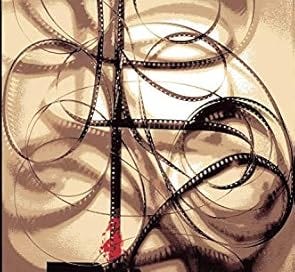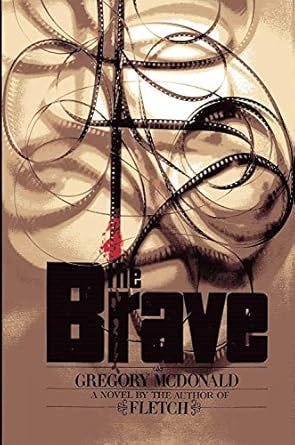Gregory McDonald is best known as an author of mystery novels, especially the comedic series Fletch. However, in 1991, he published an extremely dark novel called The Brave. While it received critical acclaim, and was even adopted into a movie directed by and starring Johnny Depp, it mostly flew under the radar in the United States and never even received a paperback release. In Europe, however, it won prestigious awards and was considered by some critics as an all-time greatest novel.
Generally, when I do one of these installments of The Unreprinted, I try to restrict myself to books that are completely out of print. This is something of an exception as, while The Brave is out of print in any English edition, it is in print in French and German editions.
The Brave follows Rafael, a young, desperately poor alcoholic. He agrees to allow himself to be tortured and murdered in a snuff film in exchange for $30,000 that he plans to leave to his wife and three kids. He takes a small advance that he uses to buy food and gifts for his family and community, and plans to spend his final days with them.
As sensational as this plot sounds, this a quiet, downbeat book with very little violence actually “on-screen.” At the beginning, Rafael is given a very graphic description of what’s in store for him on his final day. This hangs over the rest of the book, giving everything a sense of dreadful inevitability.
The bulk of the story consists of Rafael living out his last days. We find out he lives in an impoverished community that’s basically ignored by society at large. The residents live next to a dump, which they scavenge for things to sell. However, they find that a new manager has taken over and is shooting everyone who tries to take from the dump.
Rafael and his community suffer daily indignities from their grinding poverty. They have been cast aside by a cruel, indifferent society that refuses to even allow them to take what others throw away for their own survival. They are treated as criminals deserving of their place for being born poor.
Rafael receives harsh treatments for simply trying to buy things with the advance from his snuff film. He’s pulled aside in a store for buying new clothes and trying to wear them out of the store. It doesn’t matter he has the money and goes out of his way to let the cashier know. It’s only thanks to a kind stranger he escapes being arrested.
It doesn’t help that Rafael is also apparently Native American. Though this identity is imposed on him by others. Rafael doesn’t even have a connection to any kind ancestry. He isn’t sure if he’s “Indian,” Hispanic, white, or something else. Even the director of the snuff film tells Rafael how he plans to dress him in a stereotypical costume and face paint for the movie. He’s denied the basic dignity of even his own identity to the end.
It becomes clear throughout the book why Rafael views his life as so disposable that he sells it off without a second thought.
This is a book that very well deserves to come back into print. It’s a brutal, unflinching look at life for those on the very bottom of society. It’s a searing indictment against the world that devalues human life and turns it into a commodity. It’s a book that’s needed now more than ever.
- - -
Pick up my books at Amazon, Bookshop, or request them at your local book store or library.




